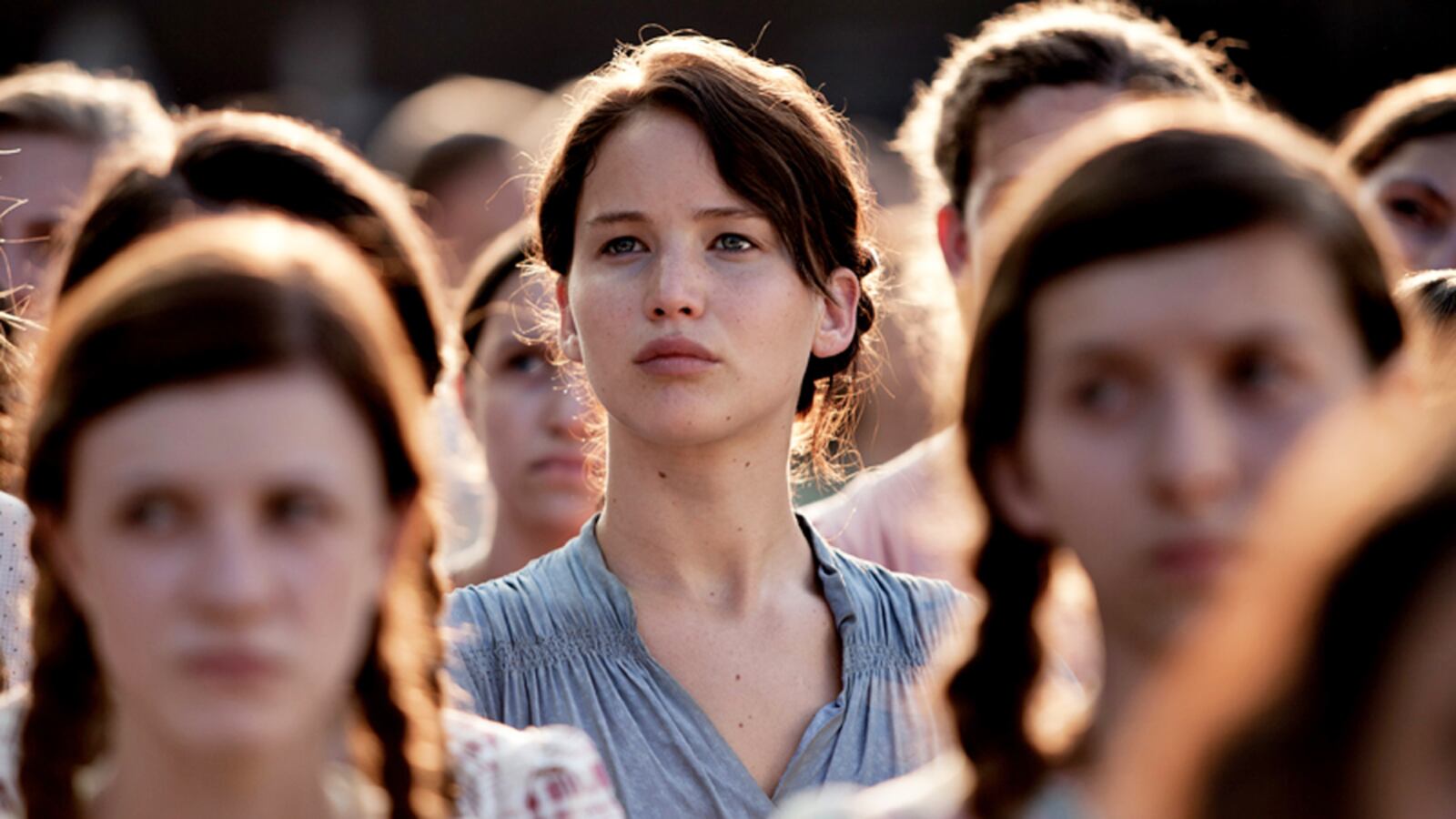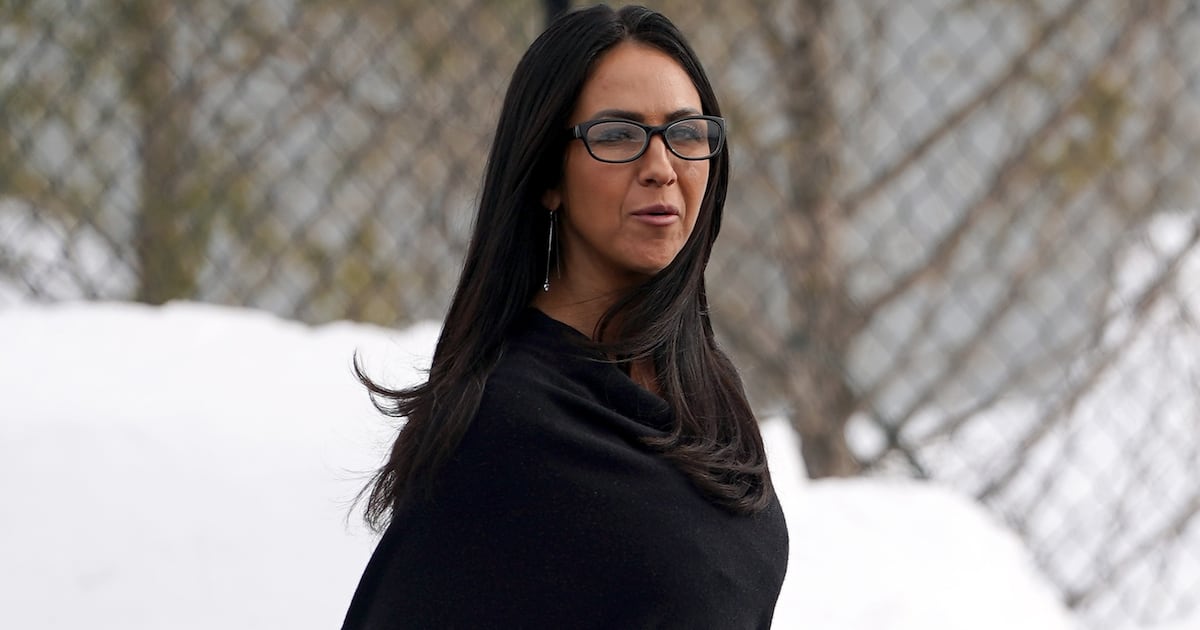Like most people her age, my 12-year-old daughter, Mandy, has had her share of fixations and fascinations with popular culture. When she was 7, she was all about Disney’s High School Musical. She had posters of the movie’s stars Zac Efron and Vanessa Hudgens on her wall, and other movie paraphernalia strewn from one end of her room to the other. Then her attention turned to singer Taylor Swift. She couldn’t get enough: posters, books, calendars, and of course Swift’s songs playing on her iPod over and over. Then came Rick Riordan’s Percy Jackson book series, which assuaged Mandy’s budding interest in Greek mythology.

But none of that prepared me for what has become her first full-blown obsession: The Hunger Games.
As most everyone knows, Suzanne Collins’s best-selling book trilogy is a phenomenon. There are reportedly more than 26 million copies in print in the U.S. alone, and advance tickets for this week’s movie debut have already sold out, surpassing sales for the first Twilight film, according to Fandango.
For the uninitiated, The Hunger Games is set in the post-apocalyptic nation of Panem, a shining but oppressive Capitol surrounded by twelve outlying districts in what was once North America. Capitol keeps the districts in line by forcing them all to send one boy and one girl between the ages of 12 and 18 to participate in The Hunger Games, an annual fight to the death on live television. Just think of reality TV at its most extreme.
The story revolves around Katniss Everdeen, a brave, street-smart 16-year-old who perfected her survival skills by stalking game in the forest near her home, in the slums of District 12. When her 12-year-old sister’s name is chosen during the District 12 Hunger Games Lottery, Katniss volunteers to take her place, knowing that it could likely lead to her death. The story’s other main character is Peeta, a 16-year-old boy from District 12 who is also selected to compete in the Games. No spoiler alerts needed here, but just know that Katniss and Peeta, who know of each other but are not friends when the story begins, become an integral part of each other’s world.
My daughter, who has a homemade T-shirt with the name “Katniss” written on it, has never been this wrapped up in anything in her life. And it’s a little troubling, given the violent subject matter.
Do I wish that our youth culture didn’t hold such a fascination with violence, death, vampires, zombies and other dark images and themes? Yes.
But what’s a loving father to do?
“I’m totally obsessed,” Mandy admits. “On a 1-to-10 scale, with 1 being bad and 10 being awesome, I would give The Hunger Games a nine and one quarter. The writing is astounding. It has romance for the girls and violence for the boys, and for some people it could be the other way around. I never wanted to put the book down. I’ve read the first book four times and the entire series twice.”
Right about now, I feel compelled to note that my daughter is a sweet, kind, level-headed, happy girl. An honors student and Girl Scout who plays tennis and volleyball, she loves shopping and going to the beach and hanging out with friends. I’ve never known anyone in my life who has a greater capacity for joy than Mandy. And, believe it or not, she still doesn’t mind being seen now and then in public with her parents.
But The Hunger Games has all but consumed her. Every time a trailer for the film comes on TV, she goes bonkers, screaming “Shhhhhhh!,” turning up the volume too high and opening her eyes about three times wider than normal—even if it’s a trailer she’s seen a dozen times.
Mandy knows the full bios of every cast member of the film, and she has strong opinions on the actors who were selected for the movie. “At first I was a little upset with them choosing Josh Hutcherson for the role of Peeta because he’s not blonde,” she says with all the authority of a veteran Hollywood casting director. “But then I found out that he was dyeing his hair. He’s a good actor, he can pull it off.”
Mandy is going to a midnight premiere with several of her friends on Thursday, March 22. Yes, it’s a school night; and they won’t get home until after 3:00 a.m. It’s insane, but after days and days of saying no, I caved. She begged us.
Mandy certainly isn’t alone in her obsession. Almost every student in her advanced English class at De Portola Middle School in San Diego shares her passion for this book. “I couldn’t put it down,” says Allie Jackson, 12. “I read for like four hours straight. I think it’s the best book I’ve ever read because of all the descriptive language and the cleverness of the plot.”
“At first I didn’t want to read it, because I thought a story about a bunch of kids being thrown into an arena was just weird,” says Michelle Tran, 11. “But the book is so much more than that. It’s about friendship, trust, love, family, realizing how lucky you are. The book made me feel exactly how Katniss felt, as if she and I were one.”
“I can’t remember any books that I have read that are better,” says Dylan Govis, 11. “The fact that kids were being sent to be slaughtered does sound bad, but it’s real life. Life isn’t right, life isn’t fair.“
Not every kid in Mandy’s class is enamored of the book.
“I didn’t really like it,” says Dohyun Lee, 12. “I mean, killing people just to win a game, what kind of story is that?” April Amor Ranches, 12, agrees: “I really don’t know why kids my age really like this book. Do you really want the United States to fall? Do you really want to kill people just to win a game? Do you think parents really want their kids to be influenced by this book? I think not!”
April has a point. It is a bit disturbing that sixth graders (and younger kids) are so drawn to a story that includes children killing children. Perhaps the greatest irony of The Hunger Games is that one of its prevailing themes—repeated exposure to violence desensitizes people—is arguably the very thing the book is doing to some of its young readers.
As for my fellow parents, most of the ones I’ve talked with have some concerns about the book’s violent aspects, but none expressed any major problems with their kids reading it. Many parents of Mandy’s classmates have decided to read it for themselves. Some have gotten hooked too.
“I couldn’t put it down,” says Pete Riley, a solar physicist whose daughter Katie is in Mandy’s class. “I do think that The Hunger Games can be read at multiple levels, not quite to the same extent as, say, The Lord of the Rings, but significantly more so than the Harry Potter series, of which I couldn’t read more than a few chapters.” For her part, Katie, 11, says “I don’t think the book was too violent because bad things happen in real life, too, like people being killed on the news, and the fact is there will always be bad things happening in life so everyone has to deal with it.”
While I’ve expressed some concerns about my daughter’s obsession, there are undeniably many positives about the national fixation with The Hunger Games. Most notably: the fact that, thanks to entertainments like this trilogy, my daughter and young people across the country still have a passion for books. That young people are still reading is a subject I wrote about a few years ago, and it evidently and thankfully still holds true.
But I’m not-so-secretly hoping my daughter’s passion for reading will soon lead her beyond just what’s new, trendy, and gory, and that she’ll gravitate toward some of the classics her mom and dad loved, such as The Great Gatsby, A Separate Peace, Catcher in the Rye, A Moveable Feast, and To Kill a Mockingbird.
Meantime, I know that like all childhood things, Mandy’s obsession with The Hunger Games won’t last forever. And it’s hard to complain too much about a child who loves a good book.
In other words, dad is waving the white flag. I surrender!
Let the Hunger Games begin.






